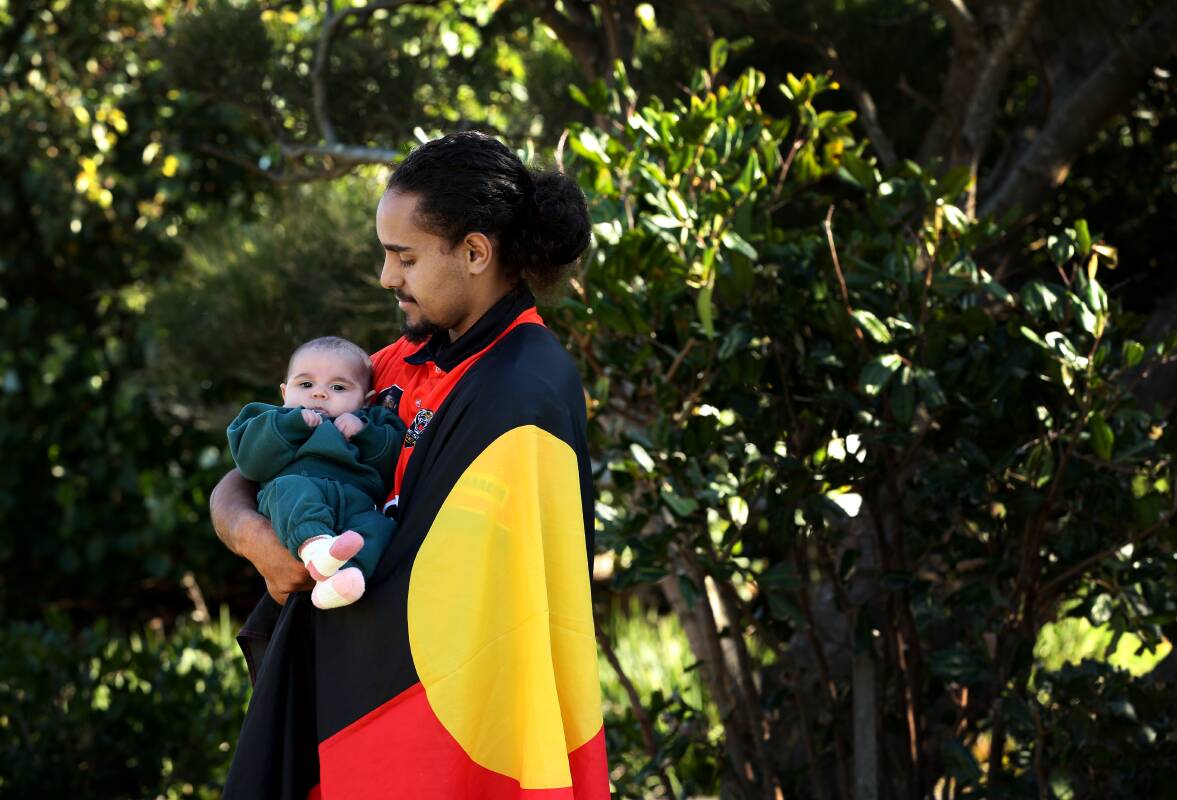
GOMEROI man Lewis Hippi couldn't imagine being anywhere but in the throng of the Awabakal Newcastle march.
"I feel happy," Mr Hippi, 18, said.
"It's a feeling I could never get enough of, being surrounded by people who have felt the same way for a long time - it's just the feeling that you're not alone.
"I love to see everyone come together for the growth of Australia as a whole, for people to come together for each other. I want to see growth and development, not just people saying it and not doing it - that has been the case most of the time... I would not want to be anywhere else today."
Mr Hippi marched with his partner Lara McKenzie, step children Roimata and Reihana and his new 11 week old daughter Kyeema, saying he hoped it was an "eye opener" for the family.
Awabakal said about 300 people marched from a flag-raising ceremony in Civic Park to Foreshore Park, where about 4500 people enjoyed entertainment including Mitch Tambo, stalls, rides and food.
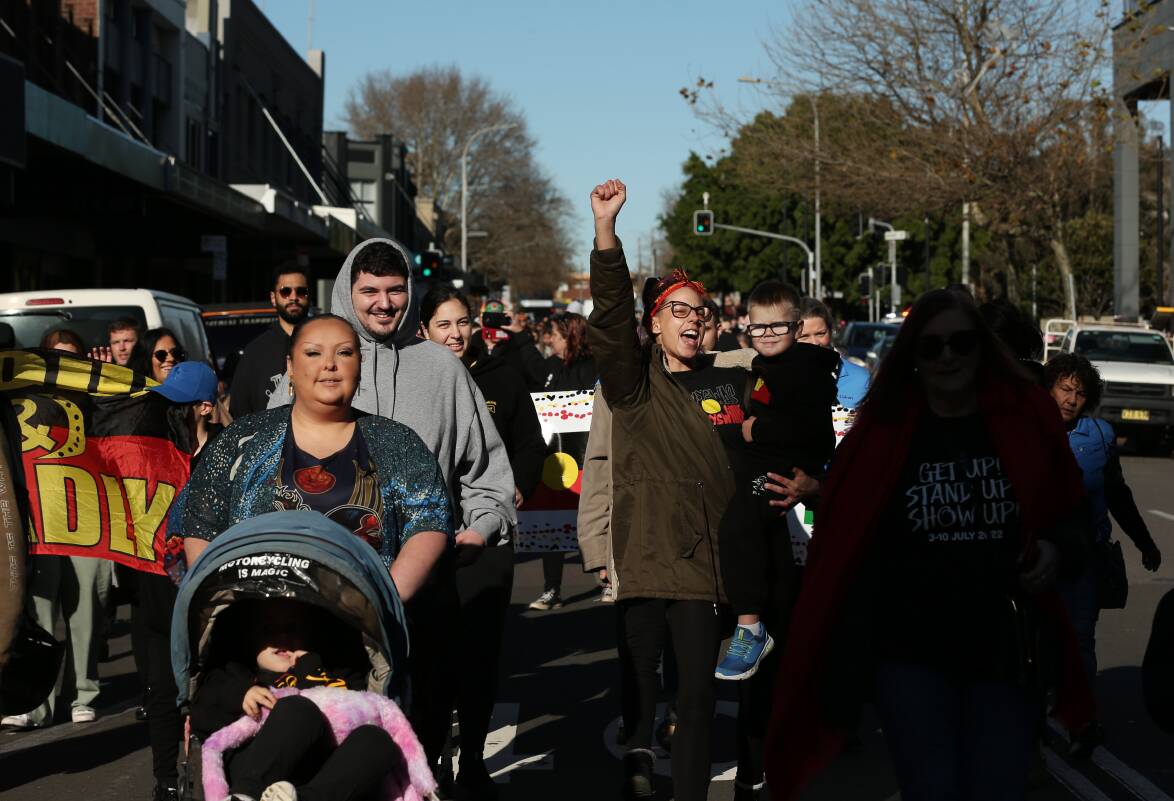
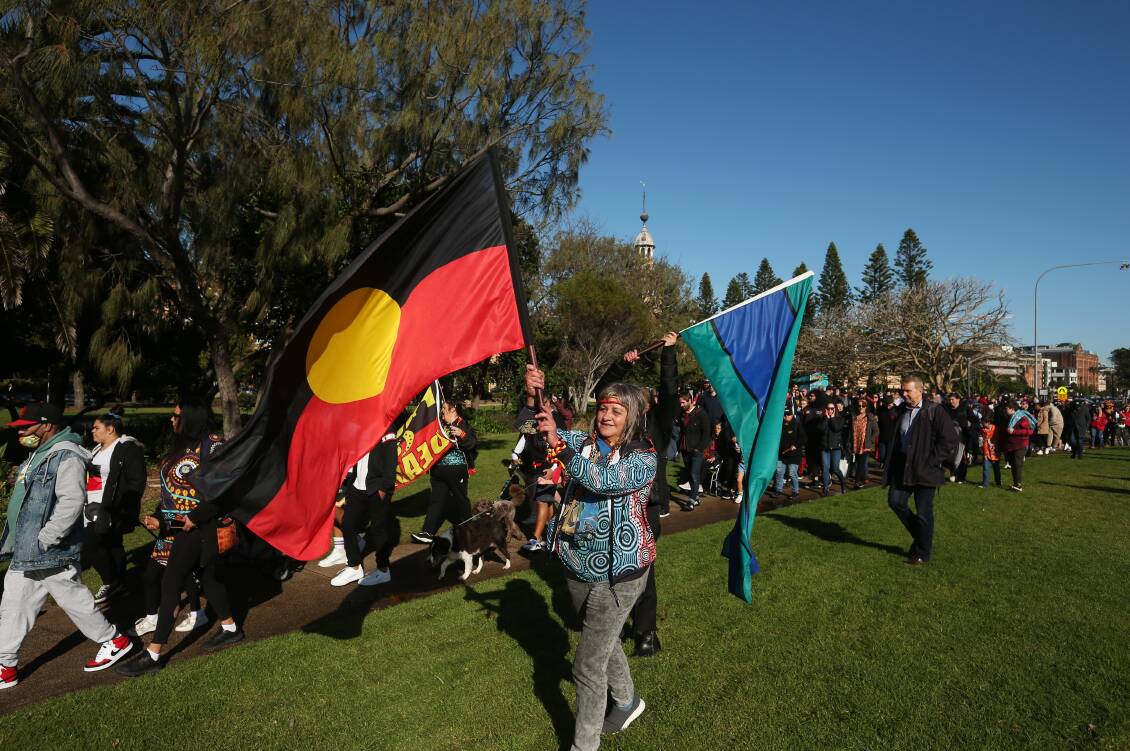


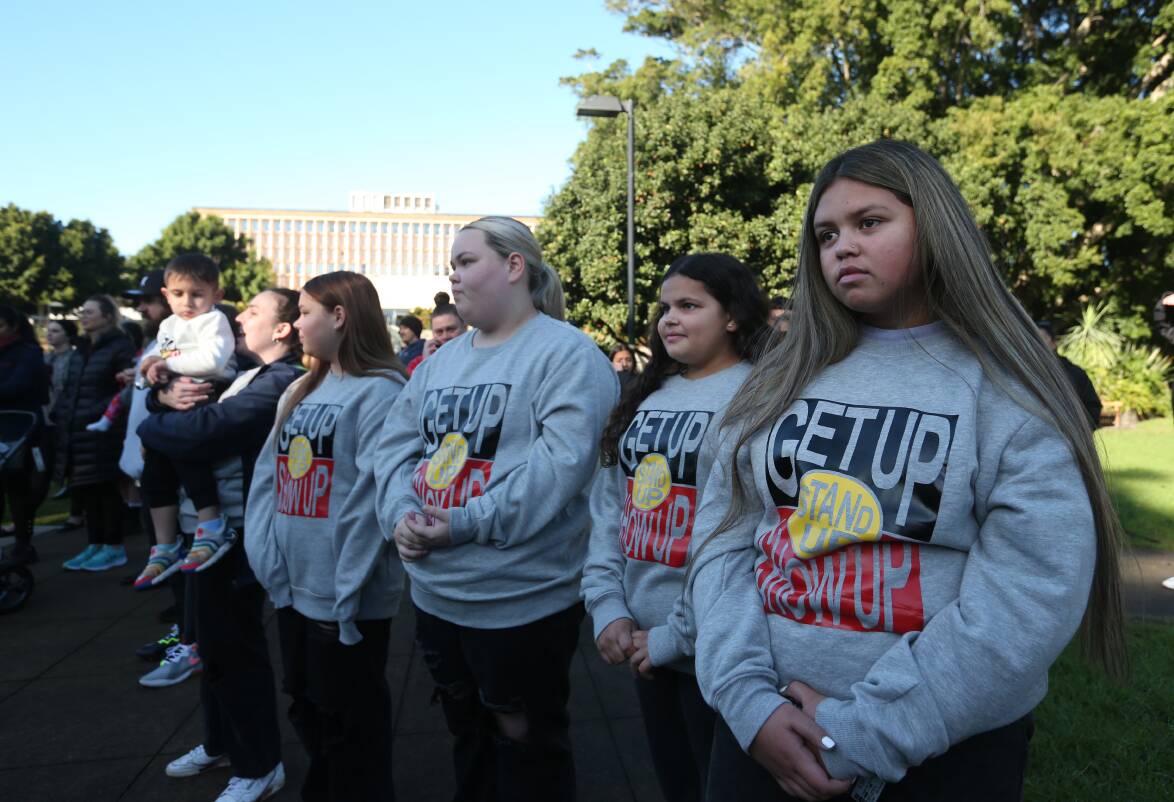
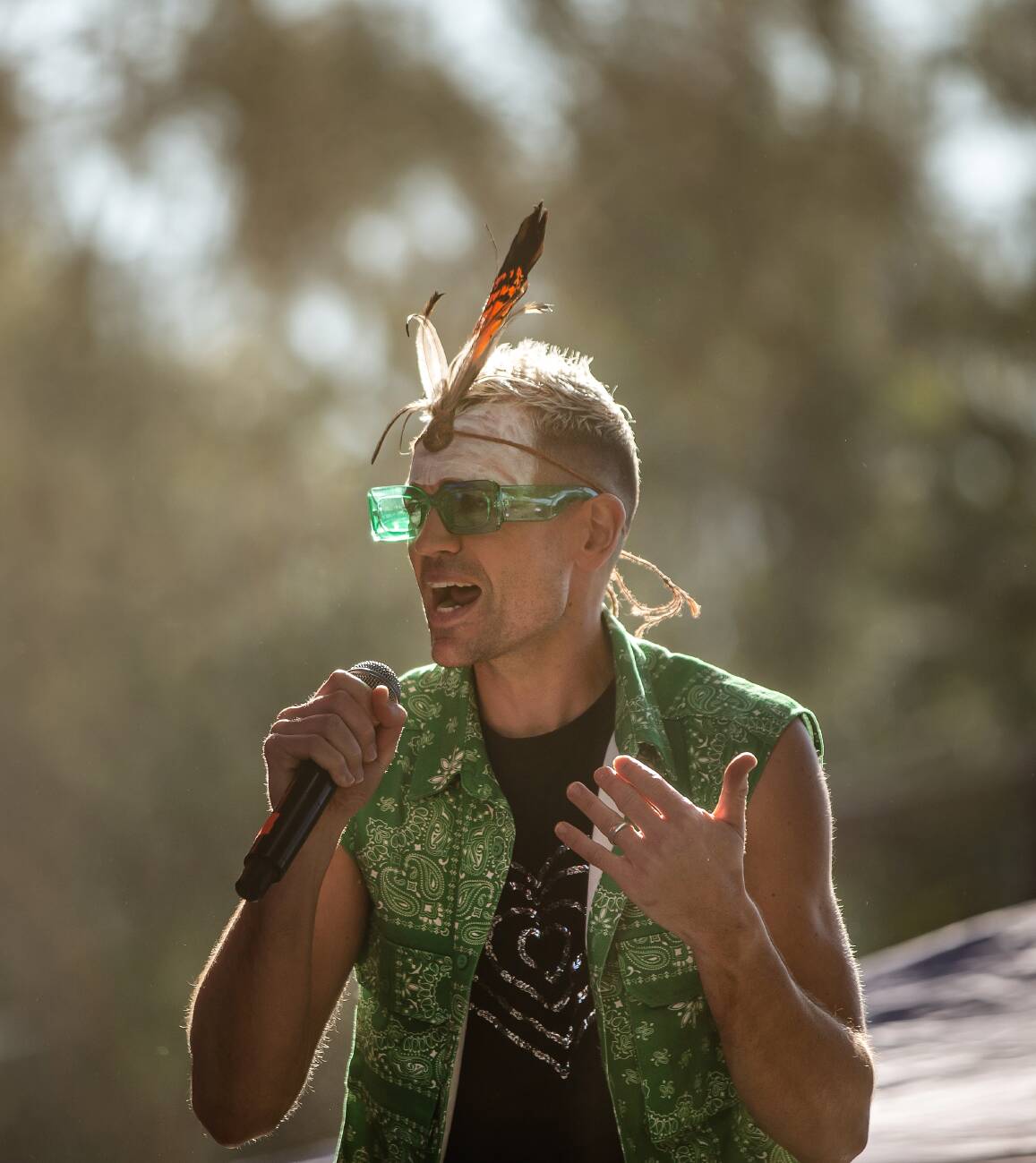
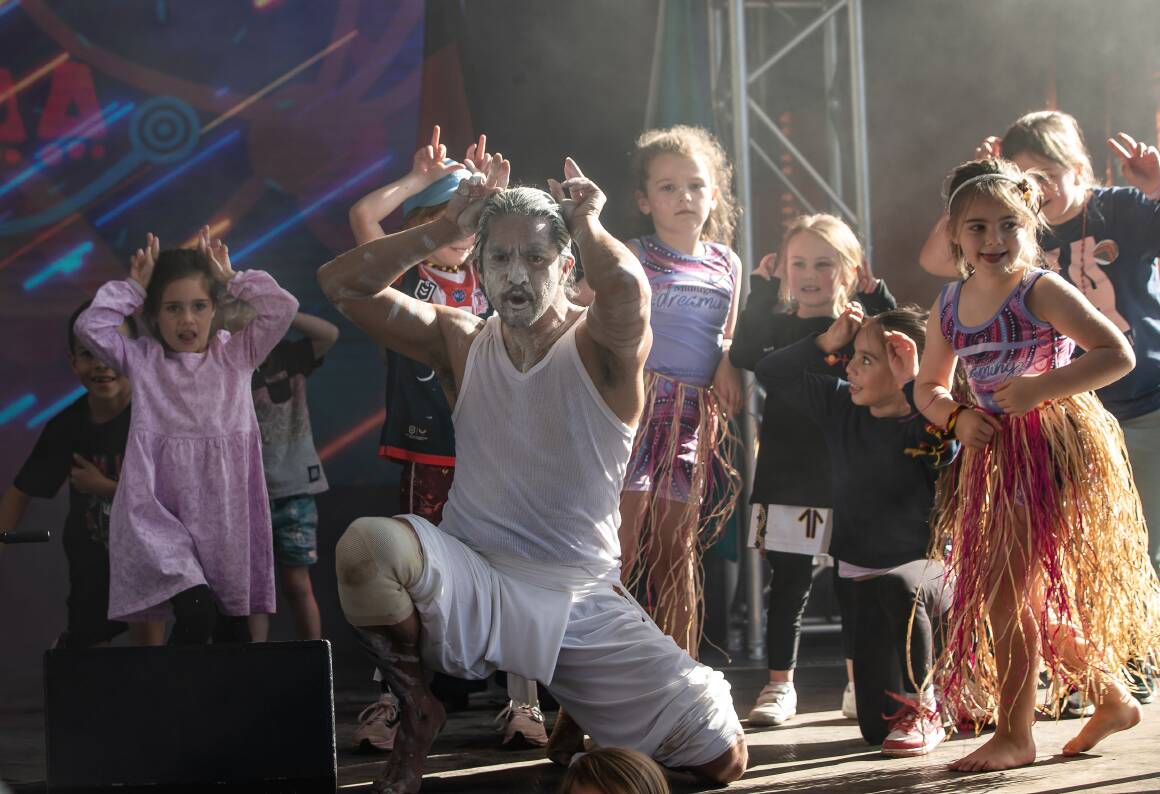

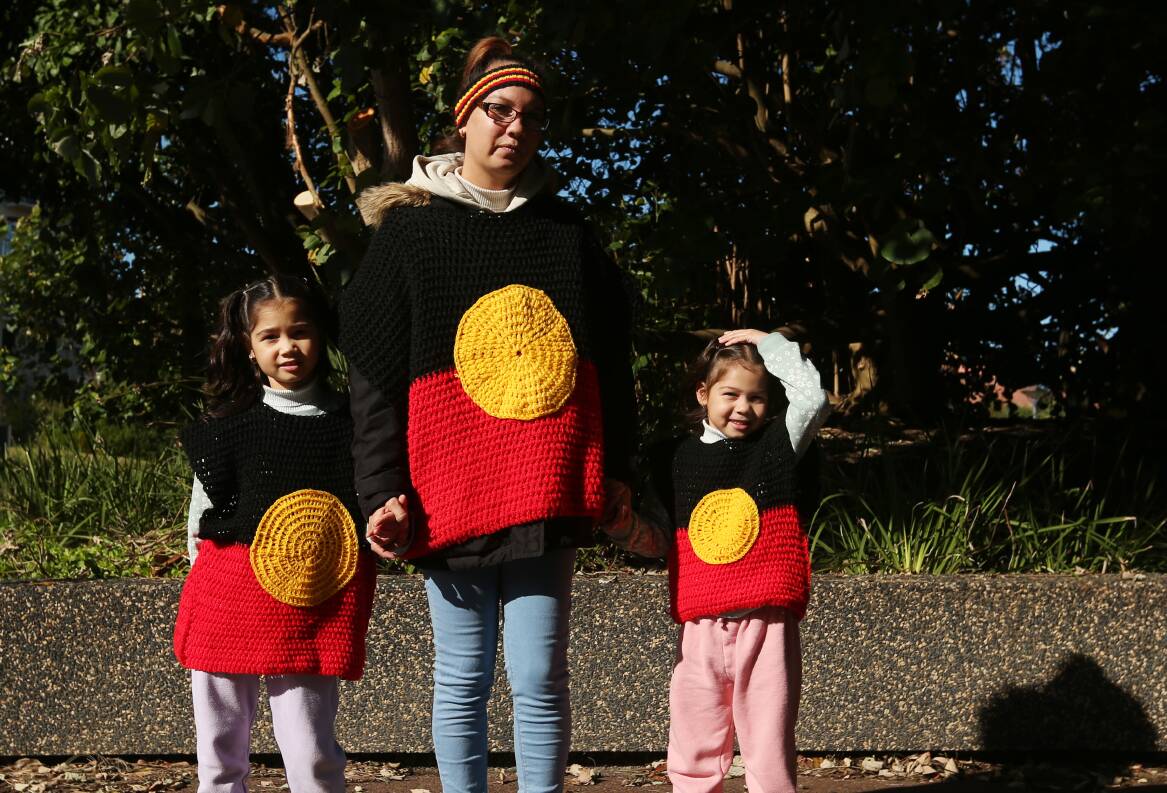
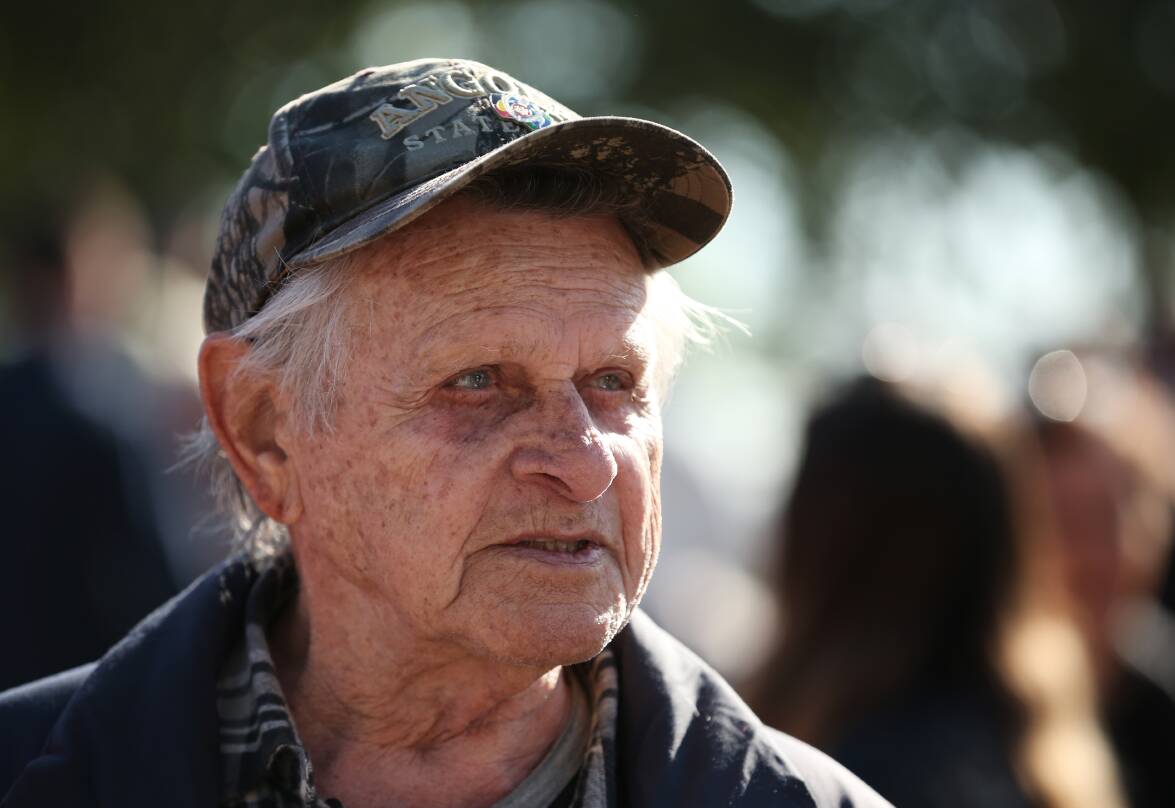
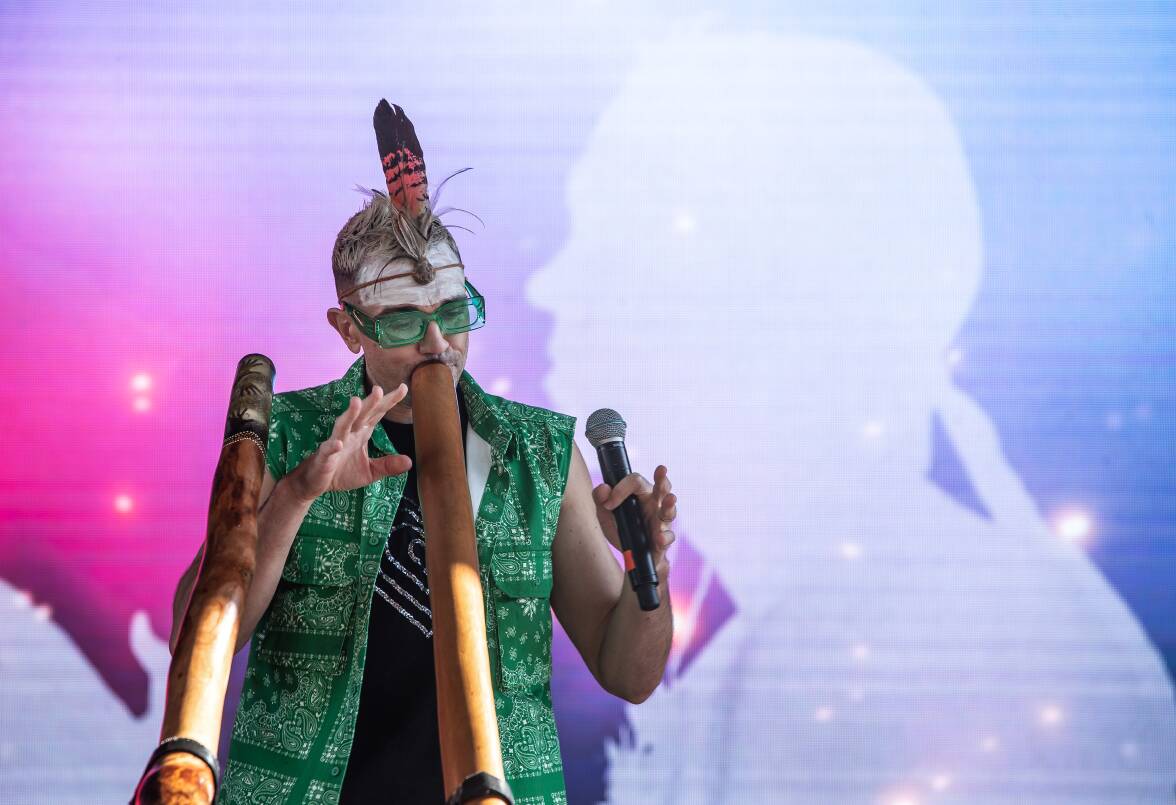
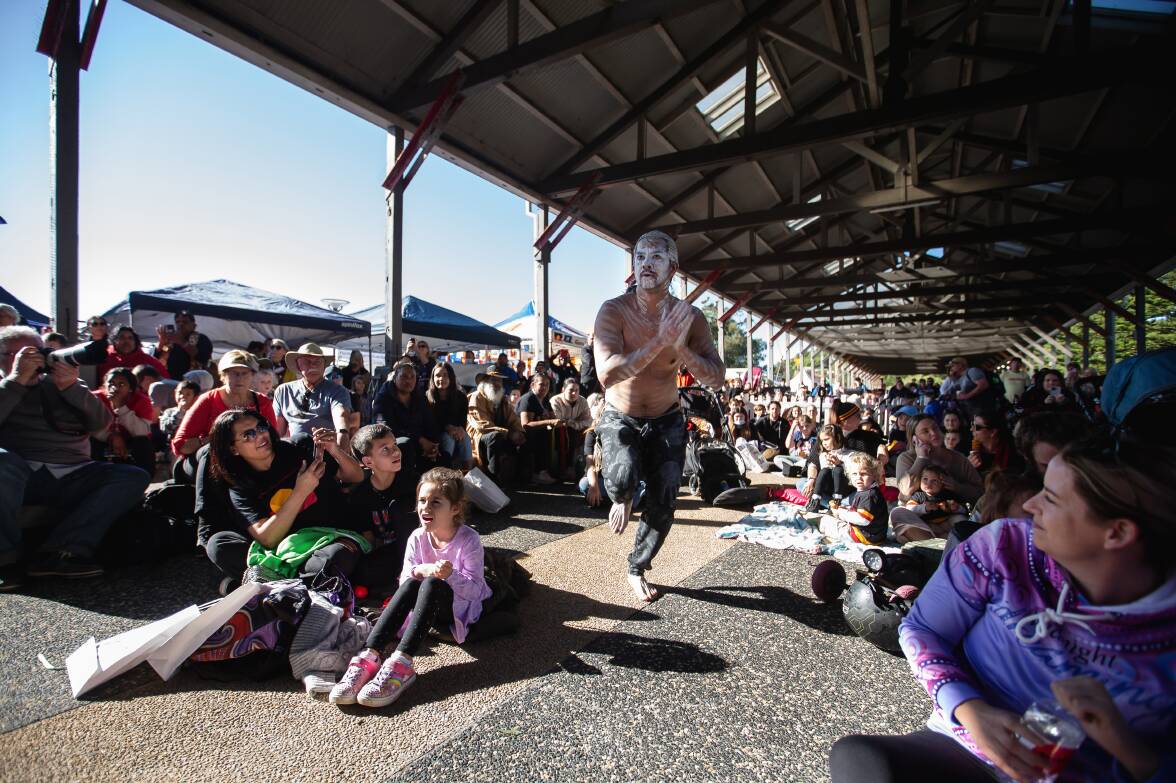
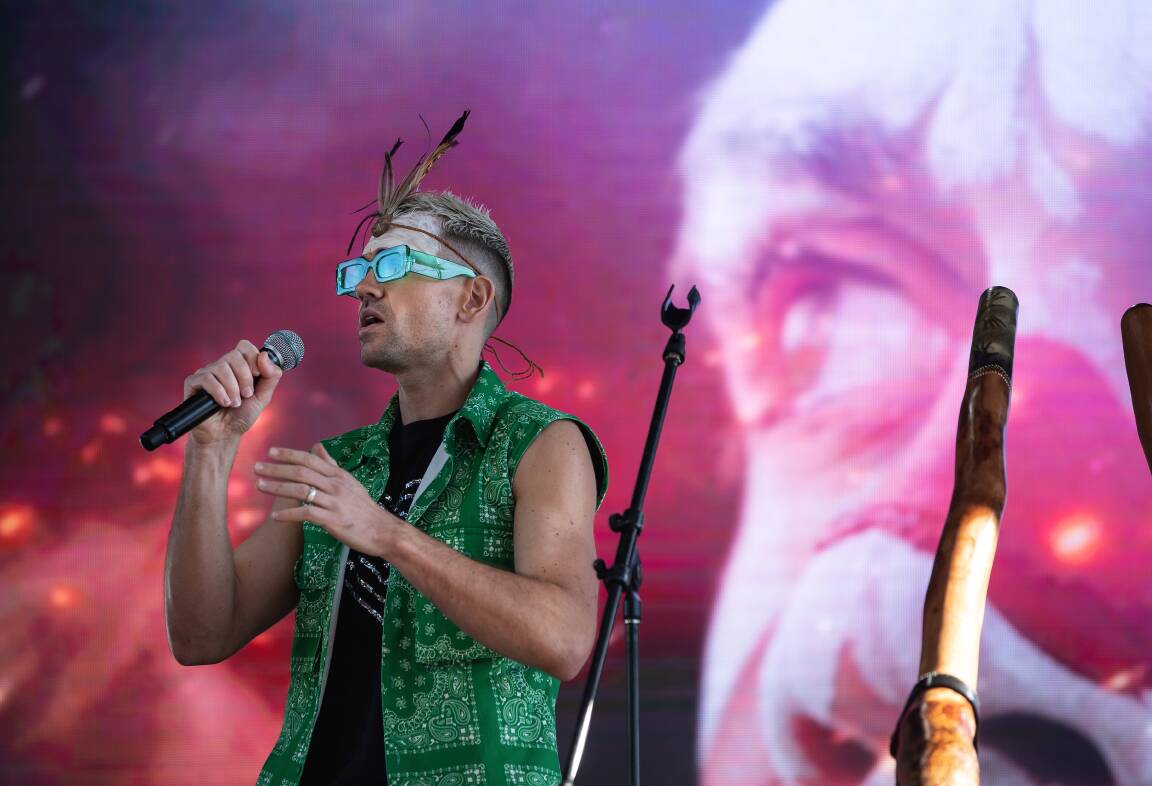


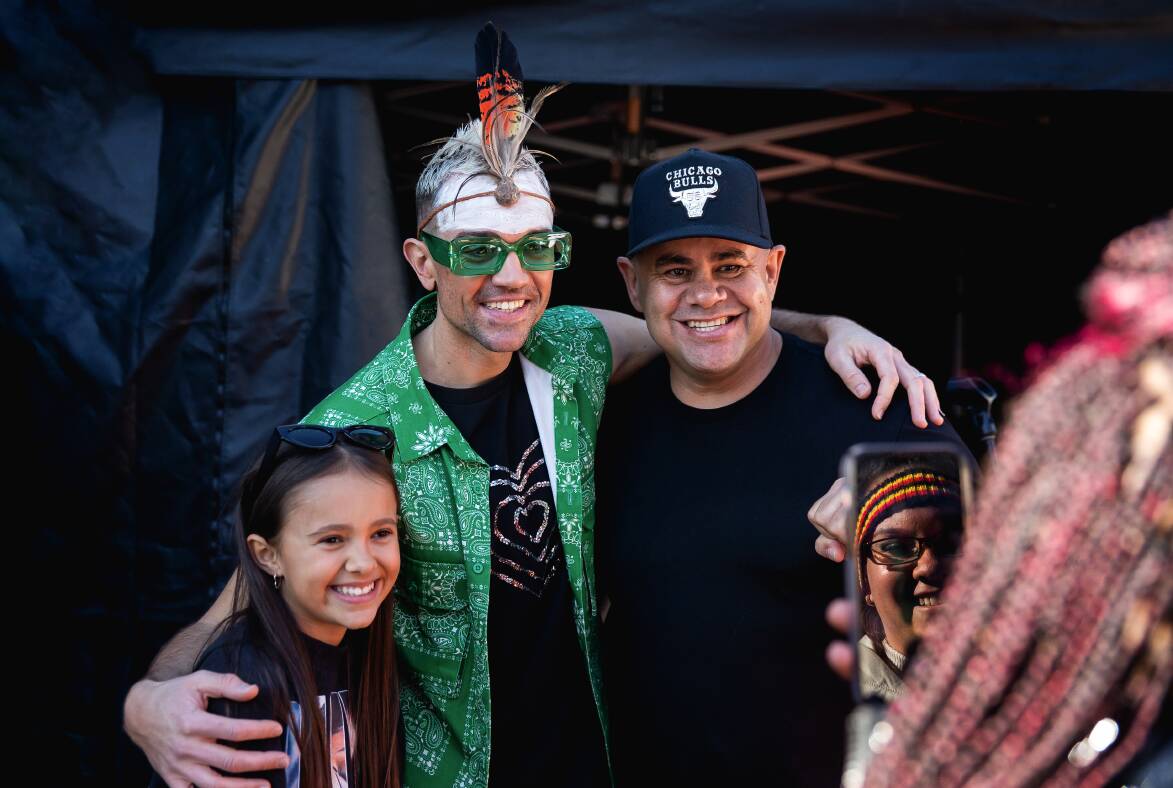
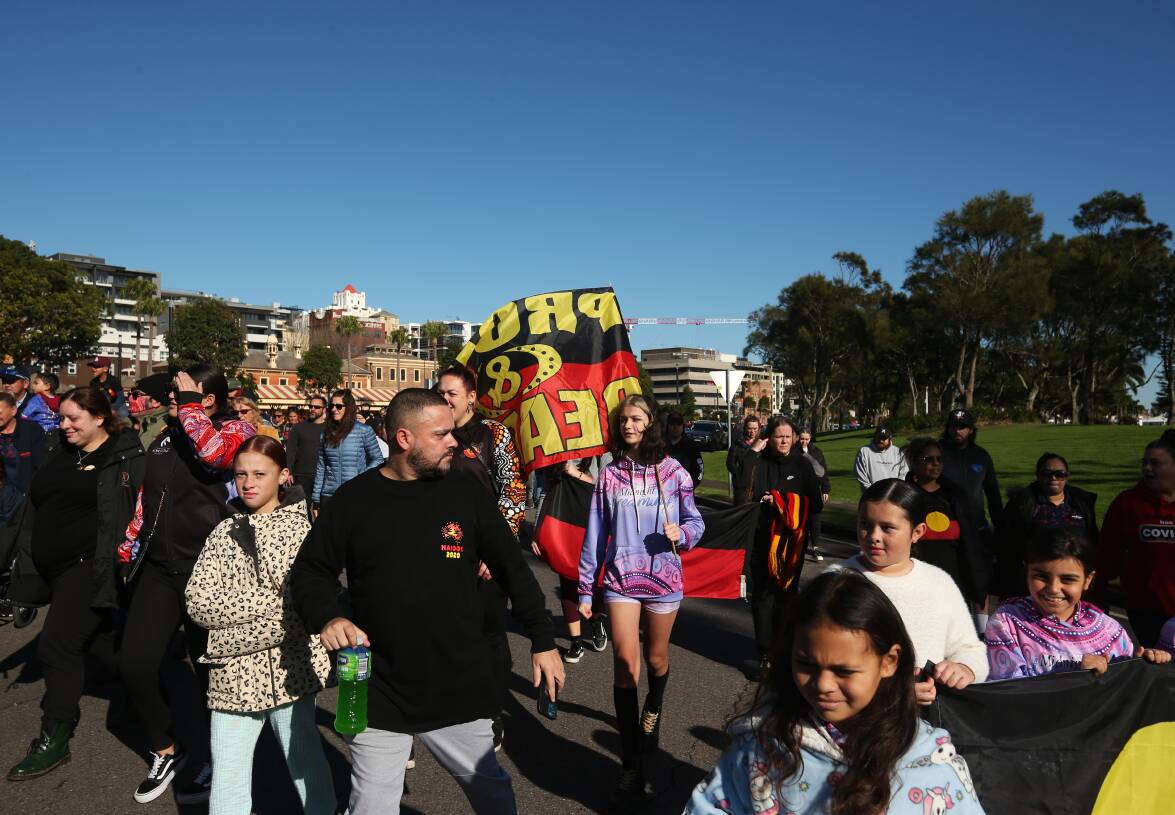
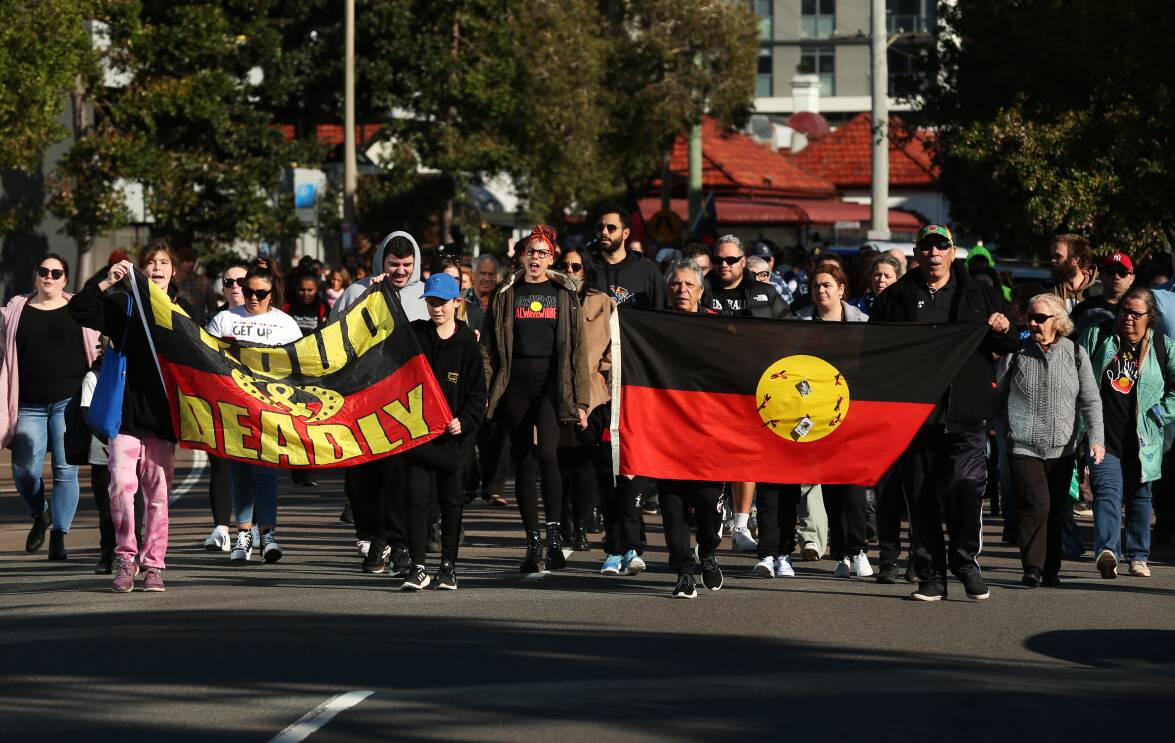
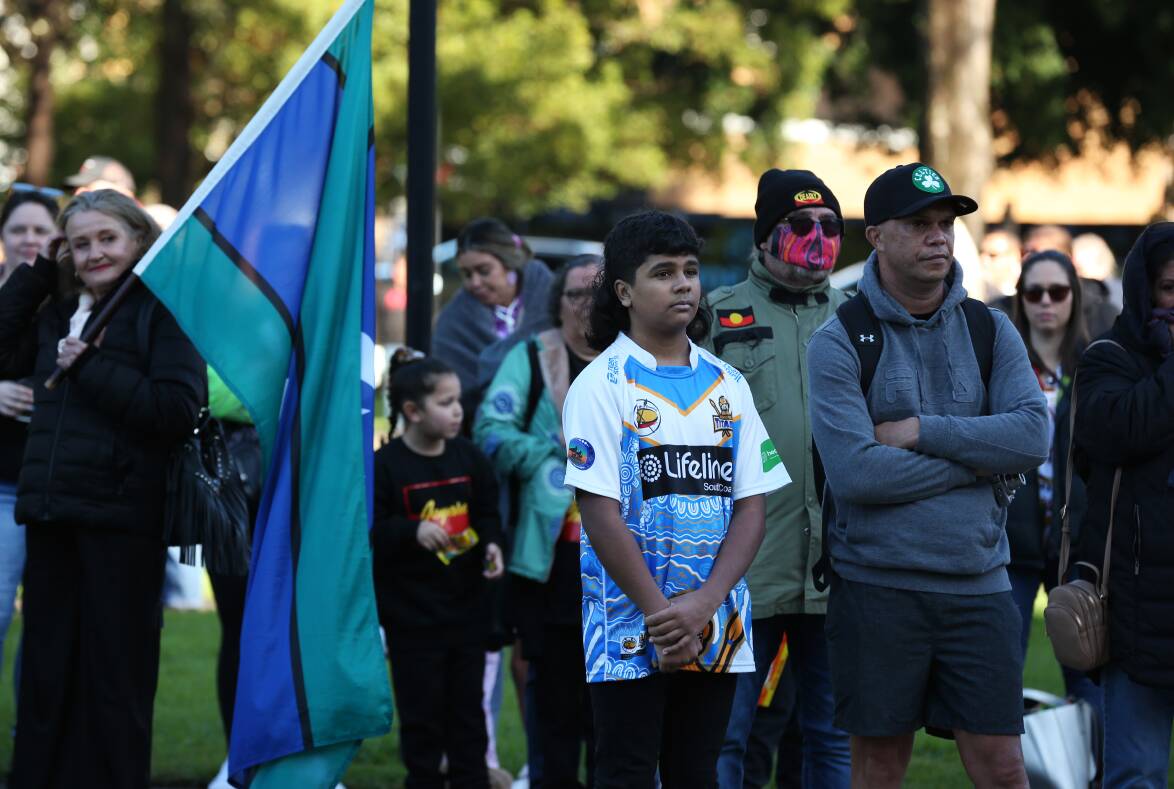
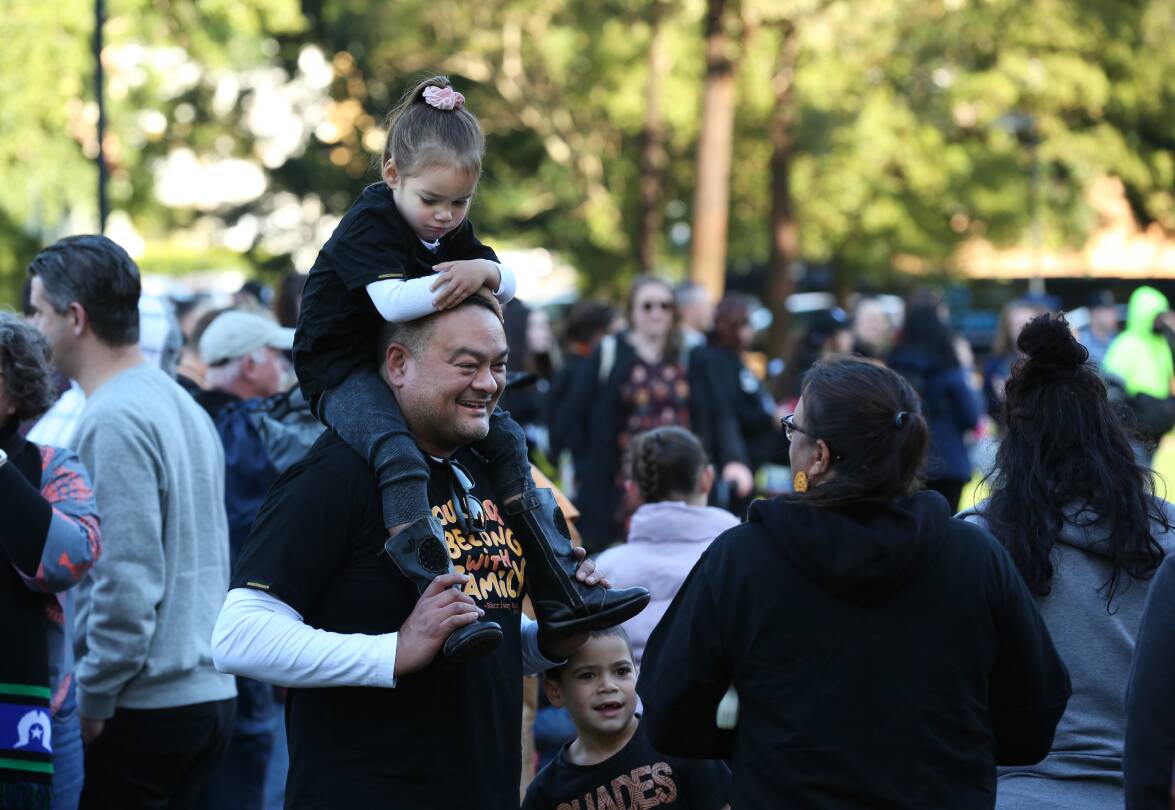
"We wanted to surround her with culture to begin with," Ms McKenzie said.
"To make sure she knows where she comes from and what's important."
Mr Hippi works in childcare at The Hub Waratah, where staff try to incorporate Indigenous learning into day-to-day activities.
"It's for everyone, I don't hold my knowledge just for Indigenous children, I give it out to anyone," he said.
"It doesn't matter where you come from, what colour your skin is, it's for everyone - it's just whether you're ready to listen."
He said young people would grow up and need to carry the campaign for recognition and equality forward.
"I just want to [help them] start as soon as possible so when it's their time they're ready, I want them to be ready and to have a voice," he said.
"We shouldn't have to fight for what we deserve. I just want us to be equal, that's what I always wanted and it hasn't felt like that....the education system was not built for us, it never was.
"If we can make our kids want to go to school and be happy, make that a safe place for them, I would love that."
Wurundjeri woman Sylke Bovill has been participating in NAIDOC marches since she was a child - and is now bringing her son, Marlo, 4.
"Today I'm here to show solidarity with my people and to show my baby the power, show him what it feels like to be in the march and get angry with us," Ms Bovill said.
"A lot [needs to change]. We want recognition, people need to know we're here and we're not going, this is Aboriginal land and it's not going to change.
"I want him to learn the culture, see the change and I want him to be recognised."
Anaiwan woman Irene Ahoy and her daughters, Kylarna, 6, and Hillary, 4, wore knitted ponchos with the Aboriginal flag for the "emotional" day.
She said she wanted her girls to be strong, proud and have a voice.
"I'm marching because I'm proud to be Aboriginal and for the people who came before us," she said.
"I'd like to see racism stop - stop stereotyping us all as one, we're all different."
Professor John Maynard said this year's NAIDOC theme, Get Up! Stand Up! Show Up! summed up the Indigenous experience since 1788.
"We have survived invasion, occupation, dispossession, cultural destruction, assimilation, segregation, the stolen generation and we are still here."
He said Indigenous people defended their land and families in "frontier wars" in the 19th century and raised their voices in political protest in the 20th century.
Dr Raymond Kelly said NAIDOC Week events are a reminder of unfinished business.
"We've come a long way, yes, but there's still much business to do," said the Deputy Head of The Wollotuka Institute for Indigenous Engagement and Advancement at the University of Newcastle.
"The move for recognition under the Constitution is absolutely the one thing that needs to be in our near future.
"We've still really got to take care of the community on the fringes, in the social justice area, in health and housing, so there's still lots for us to do.
"To think we've made it is an absolute lie. Many of our communities and those on the fringes of even our community are doing it tough.
"So what can we do? We need to do more, all of us need to do more."
He said the next generation was fighting for the same issues his did.
"By gathering together we're going to enjoy each other's company, we're going to revive ourselves and we're going to look to the young people."







